Connect
For Mahsa Darabi, The Most Important Truths Come From Within
The shift to a new season is a natural time of change and an opportunity to welcome new practices into all areas of our lives. But during a year that’s brought unforeseen challenges and a way of life that many of us never considered before, it’s more important now than ever to set intentions and incorporate routines that bring balance to our bodies and minds.
We designed the 21-Day Healthy Habits Program to help you form habits that meet you exactly where you are and that feel most aligned with where you want to be. For guidance, we’ve looked to experts in meditation, sound bath healing, and nourishing food to get their ideas on how to create healthy habits that will last.
Mahsa Darabi is a passionate chef, model, and mother of three. She fills each day with practices that help her connect more deeply with herself and show up more fully for her family and community. Mahsa’s down-to-earth approach emphasizes extending forgiveness and compassion to ourselves as we inevitably fall away from and recommit to our habits and routines.
Read on to learn how Mahsa’s approaching the back-to-school season, her ideas for making every meal a ritual, and why she’s waited all year for fall to come.
B3 MAG: You’re writing a cookbook, you’re a mother of three (including a new baby!), and you work as a model. With such a full life, what does balance look like to you?
MAHSA: I accepted a long time ago that there is truly no such thing as balance, but if I had to define it, balance would be accepting that it may never look like what we envisioned it to be—especially in this current moment.
What it comes down to is being really intentional with how I spend my time. A fulfilling day looks like one where I dedicate time to my own creative desires and to my family. It would be feeding what drives me, whether it’s working on my book, my YouTube channel—just doing anything creative. That’s what’s inside of me all day long, and it’s important for me to find a way to merge my passions with my family life.
That’s the closest we get to balance in our house. We thrive when we’re all in the kitchen together. My girls know that I’m happy when I’m cooking or creating, and when they’re in the kitchen with me they’re seeing me do what I love.
B3 MAG: We’d love to hear more about your cookbook! How did food and cooking become a passion for you?
MAHSA: My first memory of food was when I was 6 years old. I was born and grew up in Iran. The Iran-Iraq War was going on. It was a scary time, and because we had a shelter in our basement, my mom would invite all of our family to our apartment. When the bombs were really bad, that’s where we would go. But when it was safe to come out, she would make food for everyone. In many ways, it was like a giant party.
I remember the smells that would come with her when she brought out food from the kitchen, and from a very young age, I understood that food could bring people together and provide a sense of comfort even in challenging times. Everything that’s happened in my life, all the memories I have, I remember them by the food that I ate. I was always in the kitchen with my mom. That’s where she was happy, and we share that love.
On Mother’s Day three years ago, I decided that I would write my cookbook. At the time, I didn’t know what the book would be about, but I just started writing. When I committed to writing it, I knew I needed to shut off all of my social media accounts, because they suck up so much of my energy and creativity. When I allowed myself that space to focus, and through that process of writing, I realized that I make food based upon the mood that I’m in, and that’s how the title, The Moody Persian, came to be. I believe that the food we make connects us to home. I’m an immigrant, and I think there’s an immigrant in all of us, and it’s important to stay connected to those dishes and those foods that remind us of home.
B3 MAG: Our lives have changed so much since the beginning of this year. What practices are you leaning upon to help you navigate our current world?
MAHSA: I’m a very creative person, and I have the sort of mind where I don’t want to do the same thing every day. Because of that, I’ve always fought the concept of having a routine. But I’ve realized more than ever, that I need practices and habits to survive. Even if it’s making myself a chai every morning or just sitting for five minutes and meditating—those practices change my entire day.
With so much uncertainty, it’s the little practices and micro-rituals that are key. The rest of the day might be an absolute shitstorm, but as long as I commit myself to these morning routines, I’ll know that I’ve done at least something to take care of myself and tend to what brings me joy. Even if I have plans set in place for the afternoon, I’ve come to realize that I need to let go of any expectation I have for myself or my day and stay committed to the things that can be consistent.
And again, it always comes back to food. We all have to eat, so why not make it a ritual? I know that every morning I’m going to have breakfast with my girls no matter what. That sets the tone for our day, because it’s something that we can do together and it nourishes all of us. I make sure to wake up before them though so that I can have my 5 to 10 minutes of breathing, doing a quick yoga flow, and moving my body in some way before everyone else is up.
B3 MAG: So much has been upended since COVID hit, and as a result, many of us may have abandoned the practices and routines we had set in place before this all began. What advice would you have for recommitting to our habits?
MAHSA: Forgive yourself. Right this second. Forgive yourself for feeling like you don’t have it figured out, because you don’t have to have it figured out. Even in your worst moments, you are always doing your best, but for some reason, we create an illusion for ourselves that tries to convince us otherwise.
COVID is teaching us the important lesson that we really don’t have everything figured out. We may think we have plans set in place, but nothing is certain. There is no plan except to be present. It sounds cheesy, but it’s true. It’s important to pause and to find what in this moment will give you peace of mind. Try finding just one or two things every day that bring you some sort of rhythm. Even if it’s just a few minutes of breathing by yourself, that time you give back to yourself can do wonders. Find those things, and just take it minute by minute from there.
I think it’s important as well to stay connected to nature. That’s the one thing that stays constant in our lives. The lakes are flowing and the mountains and trees always stand strong. I’m seeing more and more people taking walks outside, and that’s great, because the more we surround ourselves with what is so solid and rooted, the more we become connected to everything around us. And from there, the more the expectations we have for ourselves start to fall away.
B3 MAG: So often, we fall into the trap of trusting that what we read and take in from social media is what’s best for us. How do you tune this out and instead form habits and routines that are in line with yourself?
MAHSA: I’ve learned so much from my quiet moments and from sitting in stillness with myself. Even just taking a minute to be with ourselves can show us exactly what’s right for us. All the answers are inside of us, but we’re taught constantly to look outside of ourselves.
I find too, that even if I wake up and look at my Instagram before I meditate, I feel this crazy buzzing all throughout my body. It’s that immediate, and oftentimes, we don’t even realize what all that noise is doing to us. We’re constantly getting these messages of what to be and what not to be when really, we already have those answers. We know, but so often we fail to listen.
Again, it’s just being with ourselves and trusting ourselves that we have the answers exactly as we are. But it’s so hard, because everything else is drawing us away from that.
B3 MAG: In a year when the days blend together into one great big blur, it can be challenging to acknowledge the seasonal shifts. What are some practices you have adopted that help welcome the transition from summer to fall?
MAHSA: I love the fall. I always look at it as a fresh start. The colors are beautiful; the weather gets crisp. All you want to do is cozy up. And that’s exactly what we do in my house. My girls always know fall is coming. I’ll simmer a pot of cinnamon sticks, cloves, orange peel, and nutmeg on the stove. It simmers all day, and the warm spices send off a scent that communicates that fall is here.
Even when it’s raining outside, there is no complaining in the house. We’ll make a fire, I’ll make soup. I try to look for what’s amazing and what’s special in everything. If we honor what’s special about each season, we set ourselves up to be even more grateful for what they offer. My girls know that fall means warming scents. It means candles at night, fires in the fireplace, and warm baths with essential oils. I make sure to incorporate these rituals into each day, because that’s how they associate changes in the seasons. Each one brings its own unique comfort.
And for fall in particular—it’s a time for us to go back in. During the summer, we’re out. We’re outside busying ourselves and connecting with others. But now, as we come into these colder months, it’s time to reflect and ask ourselves what we need.
B3 MAG: Along with the seasonal shift there’s also the transition back to school. How is that looking different for you this year, and how are you responding to the challenges it presents? What advice would you give to other parents who are experiencing a similar transition?
MAHSA: We’re approaching this year with a lot of planning, and I’m trying to build support where I can. I’m asking for help for the first time in my life. It’s not something I’m good at, but this time has taught me how important it is to reach out to others. Like many people, I learned the hard way in the spring that I’m not a good homeschool teacher, and trying to do all of this on my own took its toll.
So I’m asking my dad for help. I’m asking my community for help. I’ve reached out to other moms and we’re all asking how we can help each other. Right now, there’s a lot of coming together, a lot of leaning upon one another, and a lot of support.
I know it’s going to be hard, but again, I’m learning to let go of expectations. It’s been a tough year, and I’m going to take the really good stuff that comes from it and let those things blossom. And as for the things that are hard, I’m going to practice a lot of forgiveness and grace. That’s really the best I can do.
Thank you so much Mahsa! You can join Mahsa on Instagram for LIVE kitchen demos Fridays at 4pm PST all throughout the 21-Day Healthy Habits Program. Learn more about how to join here.
The shift to a new season is a natural time of change and an opportunity to welcome new practices into all areas of our lives. But during a year that’s brought unforeseen challenges and a way of life that many of us never considered before, it’s more important now than ever to set intentions and incorporate routines that bring balance to our bodies and minds.
We designed the 21-Day Healthy Habits Program to help you form habits that meet you exactly where you are and that feel most aligned with where you want to be. For guidance, we’ve looked to experts in meditation, sound bath healing, and nourishing food to get their ideas on how to create healthy habits that will last.
Mahsa Darabi is a passionate chef, model, and mother of three. She fills each day with practices that help her connect more deeply with herself and show up more fully for her family and community. Mahsa’s down-to-earth approach emphasizes extending forgiveness and compassion to ourselves as we inevitably fall away from and recommit to our habits and routines.
Read on to learn how Mahsa’s approaching the back-to-school season, her ideas for making every meal a ritual, and why she’s waited all year for fall to come.
B3 MAG: You’re writing a cookbook, you’re a mother of three (including a new baby!), and you work as a model. With such a full life, what does balance look like to you?
MAHSA: I accepted a long time ago that there is truly no such thing as balance, but if I had to define it, balance would be accepting that it may never look like what we envisioned it to be—especially in this current moment.
What it comes down to is being really intentional with how I spend my time. A fulfilling day looks like one where I dedicate time to my own creative desires and to my family. It would be feeding what drives me, whether it’s working on my book, my YouTube channel—just doing anything creative. That’s what’s inside of me all day long, and it’s important for me to find a way to merge my passions with my family life.
That’s the closest we get to balance in our house. We thrive when we’re all in the kitchen together. My girls know that I’m happy when I’m cooking or creating, and when they’re in the kitchen with me they’re seeing me do what I love.
B3 MAG: We’d love to hear more about your cookbook! How did food and cooking become a passion for you?
MAHSA: My first memory of food was when I was 6 years old. I was born and grew up in Iran. The Iran-Iraq War was going on. It was a scary time, and because we had a shelter in our basement, my mom would invite all of our family to our apartment. When the bombs were really bad, that’s where we would go. But when it was safe to come out, she would make food for everyone. In many ways, it was like a giant party.
I remember the smells that would come with her when she brought out food from the kitchen, and from a very young age, I understood that food could bring people together and provide a sense of comfort even in challenging times. Everything that’s happened in my life, all the memories I have, I remember them by the food that I ate. I was always in the kitchen with my mom. That’s where she was happy, and we share that love.
On Mother’s Day three years ago, I decided that I would write my cookbook. At the time, I didn’t know what the book would be about, but I just started writing. When I committed to writing it, I knew I needed to shut off all of my social media accounts, because they suck up so much of my energy and creativity. When I allowed myself that space to focus, and through that process of writing, I realized that I make food based upon the mood that I’m in, and that’s how the title, The Moody Persian, came to be. I believe that the food we make connects us to home. I’m an immigrant, and I think there’s an immigrant in all of us, and it’s important to stay connected to those dishes and those foods that remind us of home.
B3 MAG: Our lives have changed so much since the beginning of this year. What practices are you leaning upon to help you navigate our current world?
MAHSA: I’m a very creative person, and I have the sort of mind where I don’t want to do the same thing every day. Because of that, I’ve always fought the concept of having a routine. But I’ve realized more than ever, that I need practices and habits to survive. Even if it’s making myself a chai every morning or just sitting for five minutes and meditating—those practices change my entire day.
With so much uncertainty, it’s the little practices and micro-rituals that are key. The rest of the day might be an absolute shitstorm, but as long as I commit myself to these morning routines, I’ll know that I’ve done at least something to take care of myself and tend to what brings me joy. Even if I have plans set in place for the afternoon, I’ve come to realize that I need to let go of any expectation I have for myself or my day and stay committed to the things that can be consistent.
And again, it always comes back to food. We all have to eat, so why not make it a ritual? I know that every morning I’m going to have breakfast with my girls no matter what. That sets the tone for our day, because it’s something that we can do together and it nourishes all of us. I make sure to wake up before them though so that I can have my 5 to 10 minutes of breathing, doing a quick yoga flow, and moving my body in some way before everyone else is up.
B3 MAG: So much has been upended since COVID hit, and as a result, many of us may have abandoned the practices and routines we had set in place before this all began. What advice would you have for recommitting to our habits?
MAHSA: Forgive yourself. Right this second. Forgive yourself for feeling like you don’t have it figured out, because you don’t have to have it figured out. Even in your worst moments, you are always doing your best, but for some reason, we create an illusion for ourselves that tries to convince us otherwise.
COVID is teaching us the important lesson that we really don’t have everything figured out. We may think we have plans set in place, but nothing is certain. There is no plan except to be present. It sounds cheesy, but it’s true. It’s important to pause and to find what in this moment will give you peace of mind. Try finding just one or two things every day that bring you some sort of rhythm. Even if it’s just a few minutes of breathing by yourself, that time you give back to yourself can do wonders. Find those things, and just take it minute by minute from there.
I think it’s important as well to stay connected to nature. That’s the one thing that stays constant in our lives. The lakes are flowing and the mountains and trees always stand strong. I’m seeing more and more people taking walks outside, and that’s great, because the more we surround ourselves with what is so solid and rooted, the more we become connected to everything around us. And from there, the more the expectations we have for ourselves start to fall away.
B3 MAG: So often, we fall into the trap of trusting that what we read and take in from social media is what’s best for us. How do you tune this out and instead form habits and routines that are in line with yourself?
MAHSA: I’ve learned so much from my quiet moments and from sitting in stillness with myself. Even just taking a minute to be with ourselves can show us exactly what’s right for us. All the answers are inside of us, but we’re taught constantly to look outside of ourselves.
I find too, that even if I wake up and look at my Instagram before I meditate, I feel this crazy buzzing all throughout my body. It’s that immediate, and oftentimes, we don’t even realize what all that noise is doing to us. We’re constantly getting these messages of what to be and what not to be when really, we already have those answers. We know, but so often we fail to listen.
Again, it’s just being with ourselves and trusting ourselves that we have the answers exactly as we are. But it’s so hard, because everything else is drawing us away from that.
B3 MAG: In a year when the days blend together into one great big blur, it can be challenging to acknowledge the seasonal shifts. What are some practices you have adopted that help welcome the transition from summer to fall?
MAHSA: I love the fall. I always look at it as a fresh start. The colors are beautiful; the weather gets crisp. All you want to do is cozy up. And that’s exactly what we do in my house. My girls always know fall is coming. I’ll simmer a pot of cinnamon sticks, cloves, orange peel, and nutmeg on the stove. It simmers all day, and the warm spices send off a scent that communicates that fall is here.
Even when it’s raining outside, there is no complaining in the house. We’ll make a fire, I’ll make soup. I try to look for what’s amazing and what’s special in everything. If we honor what’s special about each season, we set ourselves up to be even more grateful for what they offer. My girls know that fall means warming scents. It means candles at night, fires in the fireplace, and warm baths with essential oils. I make sure to incorporate these rituals into each day, because that’s how they associate changes in the seasons. Each one brings its own unique comfort.
And for fall in particular—it’s a time for us to go back in. During the summer, we’re out. We’re outside busying ourselves and connecting with others. But now, as we come into these colder months, it’s time to reflect and ask ourselves what we need.
B3 MAG: Along with the seasonal shift there’s also the transition back to school. How is that looking different for you this year, and how are you responding to the challenges it presents? What advice would you give to other parents who are experiencing a similar transition?
MAHSA: We’re approaching this year with a lot of planning, and I’m trying to build support where I can. I’m asking for help for the first time in my life. It’s not something I’m good at, but this time has taught me how important it is to reach out to others. Like many people, I learned the hard way in the spring that I’m not a good homeschool teacher, and trying to do all of this on my own took its toll.
So I’m asking my dad for help. I’m asking my community for help. I’ve reached out to other moms and we’re all asking how we can help each other. Right now, there’s a lot of coming together, a lot of leaning upon one another, and a lot of support.
I know it’s going to be hard, but again, I’m learning to let go of expectations. It’s been a tough year, and I’m going to take the really good stuff that comes from it and let those things blossom. And as for the things that are hard, I’m going to practice a lot of forgiveness and grace. That’s really the best I can do.
Thank you so much Mahsa! You can join Mahsa on Instagram for LIVE kitchen demos Fridays at 4pm PST all throughout the 21-Day Healthy Habits Program. Learn more about how to join here.


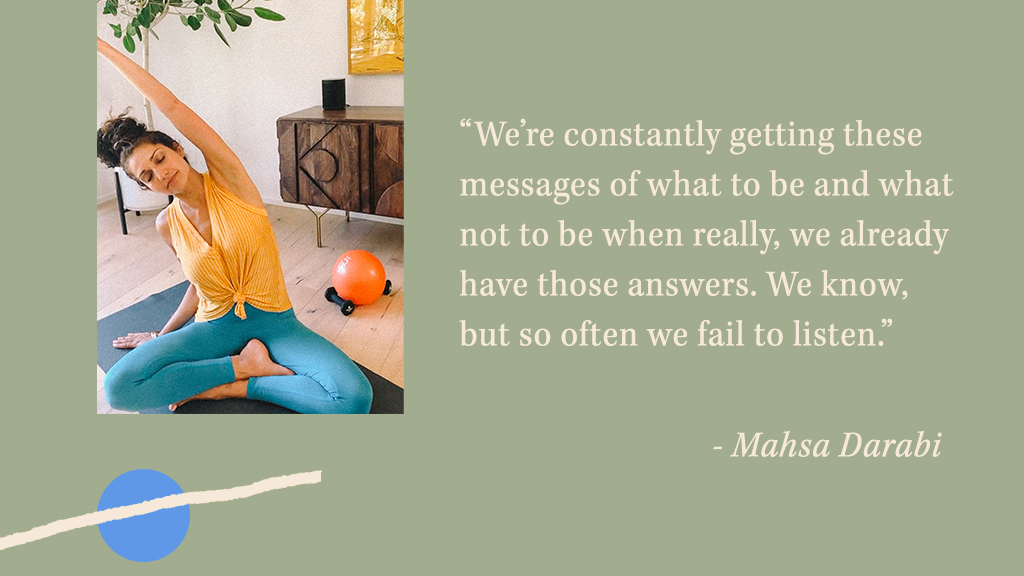
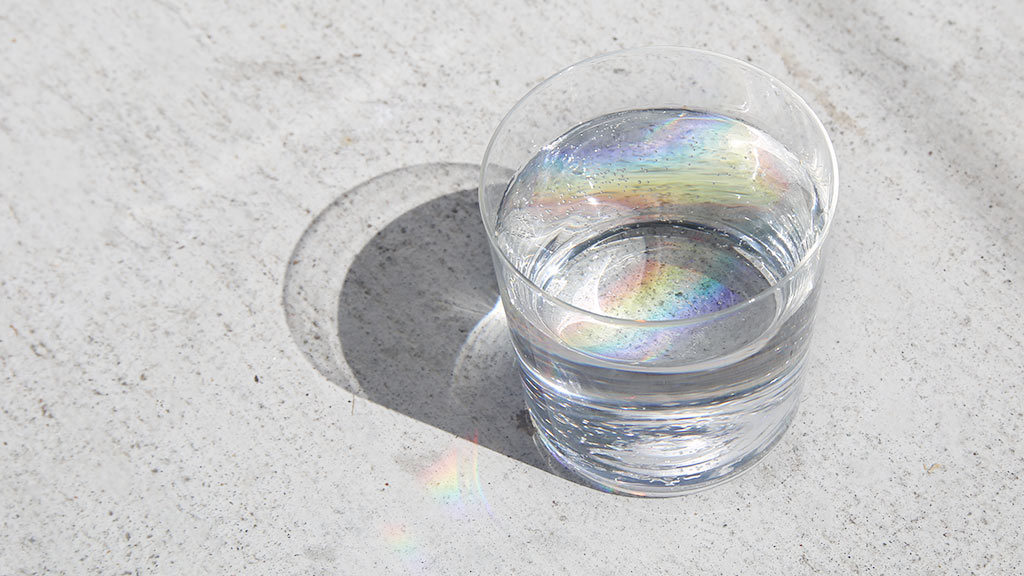
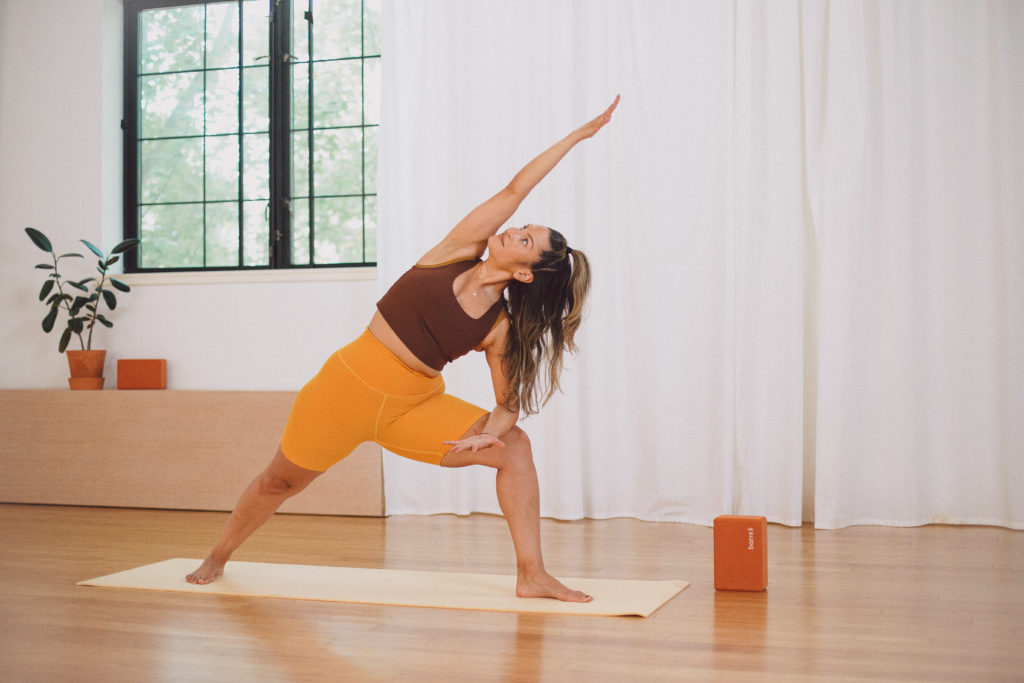
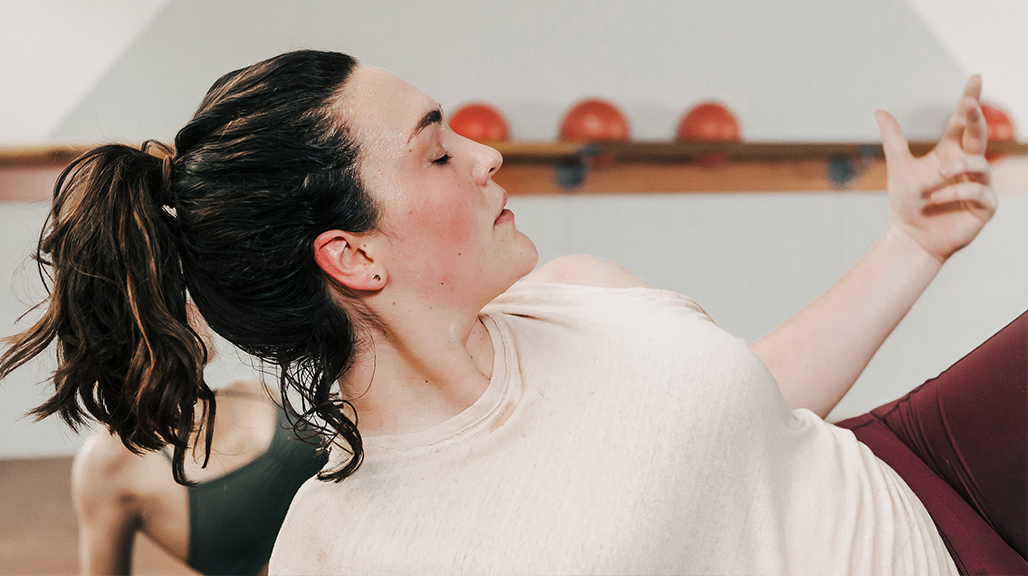
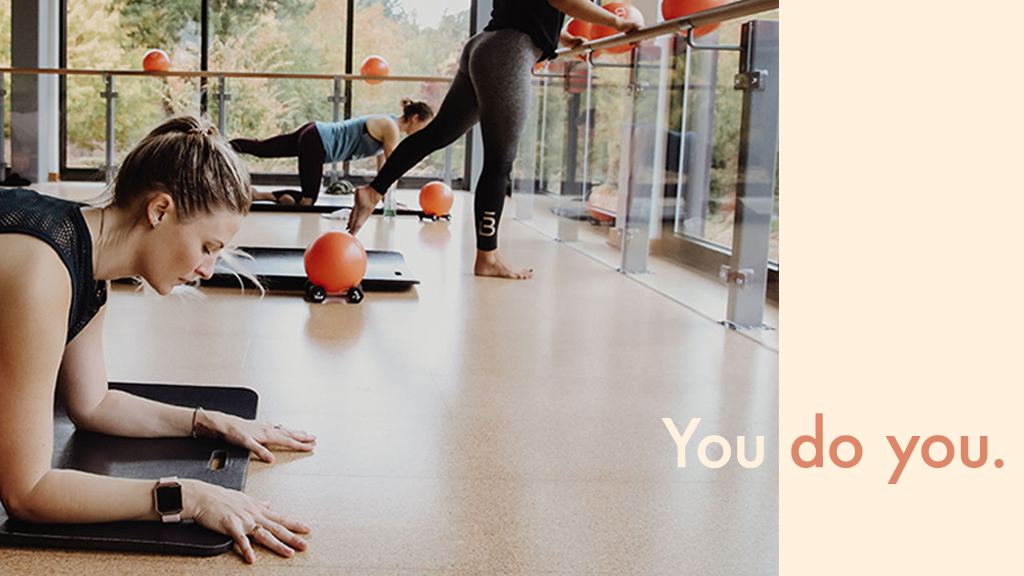



0 people have left a comment. Join the conversation!
View Comments